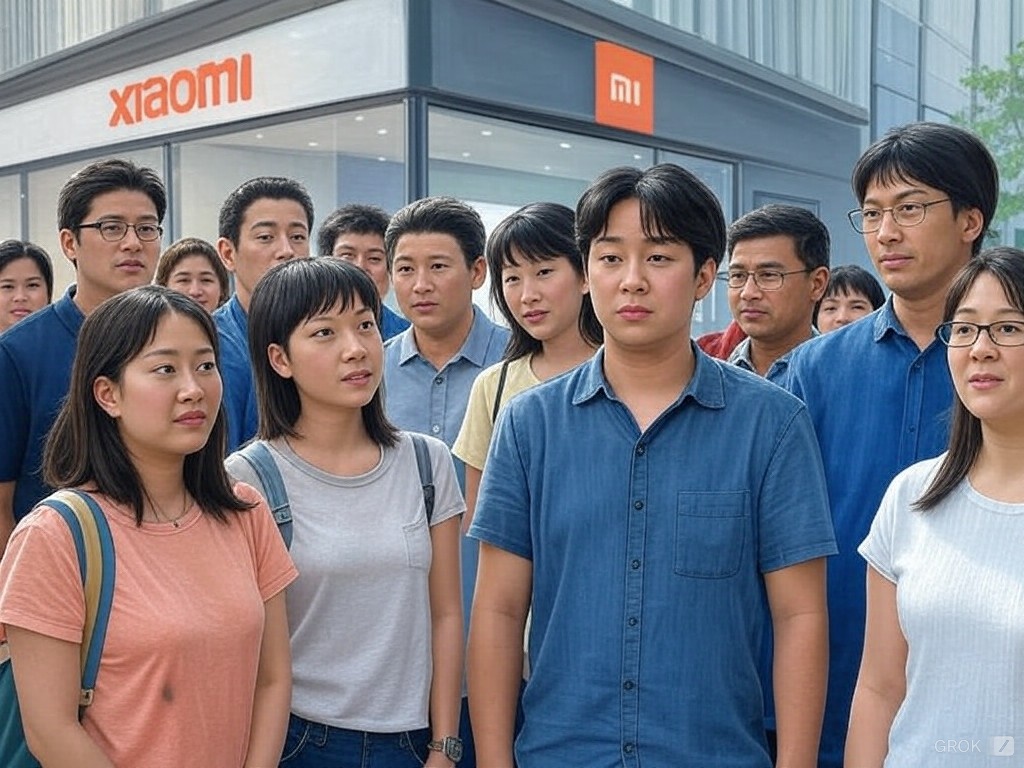Not only that, but Xiami is also taking critical steps in Japan, where its President, Akira Onuma, pointed out that this network will help the firm in the competitive market through the construction of a direct sales network. The Company would now launch brick-and-mortar stores-like its “Mi Home” stores in mainland China and Hong Kong. These showrooms will let Xiaomi explain and show its IoT ecosystem-illustrating how its smartphones connect with home appliances.
A Growing Market Share
In a startling turn of events, the rise and growth of Xiaomi have turned around in Japan. The smartphone giant shipped close to 490,000 units in the country this year’s Q2; this was against its figures of the corresponding period of last year; quite a big increase by 5.6x, and launched itself to fourth place in the market. Others such as Sharp and Google stood second and third respectively after Apple, taking overall market shares that went ahead, with an enormous jump: surging from the low single digits of 1% to 7%.
Further data from MM Research Institute shows that Xiaomi shipped 861,000 smartphones in Japan during the period from April to September in 2024, up 418.7% year-on-year. The growth helped Xiaomi attain a position among the top five smartphone brands in Japan.
The Role of The Physical Store
It is clear that the way Xiaomi has chosen to set up physical stores will be oriented toward improving customer interaction in order to show its capabilities related to IoT. Among other items, there are smartphones, TVs, and sweeping robots; all of them combined will give full exposure to the ease and functionality that connected devices bring.
A pop-up physical store that opened in late May 2024 in Tokyo’s Shibuya PARCO showed such potential. Many products were on show, and their success was quite evident, as even high-priced items found customers. Such success is acting as a spur to encourage Xiaomi to increase its physical presence in Japan.
Targeting the IoT Market
These new physical stores would serve as the hub for showcasing the Internet of Things ecosystem of Xiaomi. IoT-enabled TVs will show how smartphones could integrate with home appliances to promote a convenient and innovative concept. With hands-on demos, Xiaomi is trying to make a difference in this market, which is not very well aware of IoT technology.
Challenges and Opportunities
For now, however, Japan is a very challenging arena because of strong players like Apple, Sharp, and Google. Despite the many obstacles, Xiaomi does what it can to make things easier for users by its policy of offering cheap but powerfully featured phones. Meanwhile, tremendous growth figures also show that Japanese consumers increasingly like the products from the company. Japanese sales would especially come in replacement of feature phone losses since some still don’t use smartphones in that country.
In the first half of 2024, Japan’s smartphone shipments accounted for 96.5% of total mobile phone sales, reflecting a sharp inclination toward intelligent devices. How well Xiaomi can align its products with this trend might further boost its position in the market.
Mi Xiaomi’s expansion into Japan through physical stores, while at the same time placing heavy emphasis on IoT integration, speaks of a focused strategy in laying the foundations for a long-term presence in the region. With its affordable pricing, wide product portfolio, and innovative technology, Xiaomi is ready to take on established players in the Japanese smartphone market. As the company grows, its stores are expected to continue to serve as major points for educating consumers about its ecosystem while increasing device adoption of the IoT devices that it creates. The ambition of Xiaomi underlines not only how it dreams but also continues to be on the lead in front of a highly promising future for cutting-edge technologies for global customers.


 Emir Bardakçı
Emir Bardakçı


